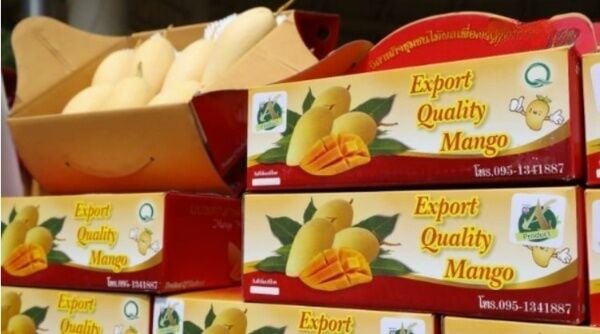Mango mania: Thailand’s sweet export boom

Thailand’s mango exports soared by a staggering 130% in the first quarter of this year, reaching an impressive 1.6 billion baht, compared to the same period last year. Not to be outdone, exports of sticky rice saw a notable increase of 13%, totalling about 1 billion baht.
Chotima Iemsawasdikul, the Director-General of the Trade Negotiations Department, attributed this surge to the growing global popularity of Thai mango sticky rice. Recently ranked as the world’s second-best rice pudding by TasteAtlas, this beloved dessert has captivated taste buds worldwide, opening new opportunities for Thai exporters.
“This ranking has significantly boosted the demand for mango sticky rice in many countries.
“It’s a prime time for our exporters to capitalise on existing Free Trade Agreements (FTAs) with ASEAN, China, Japan, South Korea, Australia, New Zealand, India, Chile, Peru, and Hong Kong.”
Thailand proudly stands as the fifth-largest mango exporter globally and the second-largest exporter of sticky rice. Chotima highlighted that within the nine ASEAN countries, only Laos and Cambodia impose a 5% import tax on Thai mangoes. In contrast, China, Japan, Hong Kong, Australia, New Zealand, India, Chile, and Peru welcome Thai mangoes duty-free, while South Korea imposes a 24% tax.
As for sticky rice, it’s a sweet deal for many countries: Australia, New Zealand, Hong Kong, Laos, Cambodia, Singapore, Brunei, and Chile do not levy import taxes. Meanwhile, China has reduced the import tax to 50%, Indonesia to 30%, and Malaysia to 32%, reported Thai PBS World.
Adding to the export frenzy, frozen ready-to-eat mango sticky rice is now shipped to 16 countries, all enjoying zero import tax.
In related news, the Thai National Shippers’ Council (TNSC) projects a 1% to 2% growth in exports for the current year and urges a thoughtful approach to the proposed increase in the daily minimum wage, supplemented by government support via the wage committee mechanism.
In other news, a social media user’s concern about strange black lines in a mango sparked a significant online dialogue, leading to a flurry of comments and a revelation that these lines are not harmful to humans.
Latest Thailand News
Follow The Thaiger on Google News:


























